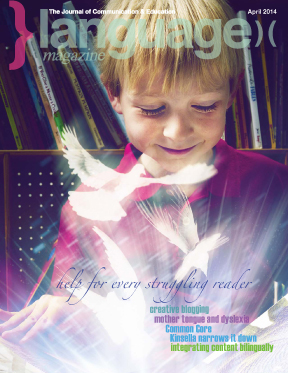Redefining Literacy in the Communication Age
Way back in 1965, UNESCO created International Literacy Day to highlight the importance of literacy to individuals, communities, and societies. And since then, world literacy rates have gradually risen in line with economic development, but 775 million adults still cannot read and write — and many adults in developed countries, though classified as literate, may still lack the type of functional literacy necessary to achieve their potential in this age of borderless communications.
The benefits of having a literate population are immense. Literacy increases people’s self-esteem and creates opportunities to escape poverty. It equips women with the knowledge and confidence to participate in decisions that affect them. Literacy programs also promote equity when targeting populations with a history of marginalization. But merely defining literacy as the ability to read and write is not enough in our global society.
Initially, it seems simple to define literacy as basic reading and writing, but literacy as a concept is both complex and dynamic. According to their situation, people’s notions of what it means to be literate or illiterate are influenced by academic research, institutional agendas, national context, cultural values, and personal experiences. In the academic community, theories of literacy have evolved from those focused solely on changes in individuals to more complex views encompassing the broader social contexts (the “literate society”) that encourage and enable literacy activities and practices to occur. As a result of these and other developments, understandings in the international policy community have expanded too: from viewing literacy as a simple process of acquiring basic cognitive skills, to using these skills in ways that contribute to socio-economic development, to developing the capacity for social awareness and critical reflection as a basis for personal and social change.
Because technology has increased the intensity and diversity of communications, the 21st century demands that a literate person possess a wide range of abilities and competencies — multiple literacies. Active, successful participants in our 21st-century global society must develop proficiency with technological tools; manage multiple information streams; analyze multimedia sources; appreciate multicultural nuances; and effectively communicate internationally.
Literacy is about communication, and our ability to communicate has been revolutionized to such an extent that people who lack such skills are effectively illiterate within the context of our society. Luckily, kids’ thirst for games, entertainment, and communication is inspiration enough for them to become technologically proficient, able to manage information, and adept at analyzing multimedia. However, many kids are missing out on the opportunities which will come from learning how to communicate internationally.
Acquiring literacy in a second language offers the best potential for developing such skills. Although English may be the world’s international language, the process of learning, or even just attempting to learn, another language gives insight and understanding that cannot be acquired in any other way. This is the literacy of the 21st century.
Thanks to its multicultural heritage and recent influx of immigrants, America has an historical opportunity to offer its youth the gift of multicultural and multilingual education through the provision of dual-language programs that not only encourage the retention of heritage languages and literacies but enable monolingual, English-speakers the ability to acquire international experience in their own backyard.
Such experience is easily built upon through the joy of modern communications, making 21st-century literacy so very achievable.
IN THIS ISSUE:
Help for Every Struggling Reader
Cutting to the Common Core
Kinsella on Narrow Reading
Dr. Kate Kinsella advocates the use of Narrow Reading Units as a portal to word knowledge and literate discourse
Riding the Blogging Trail
Leah Stilman sees blogging as the logical development of creative writing
Dyslexia and
the English Learner Dilemma
Kelli Sandman-Hurley advocates using the mother tongue to diagnose dyslexia
Integrating Content and Language
Tania Ruiz presents educators’ impressions of the dual-language methodology sweeping Europe
Last Writes
Richard Lederer with a some departures of a timely nature



